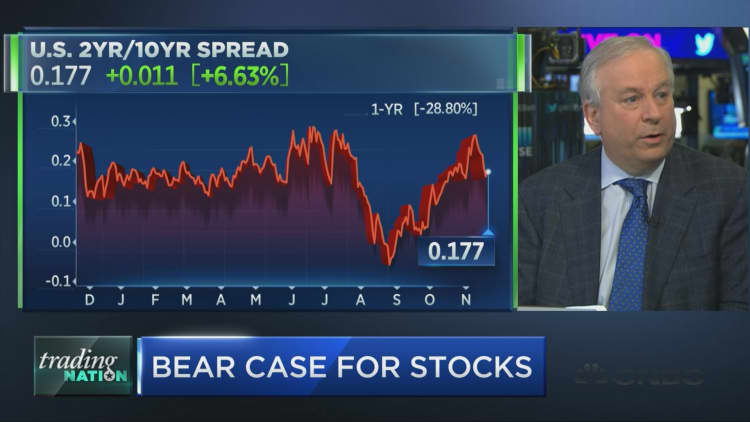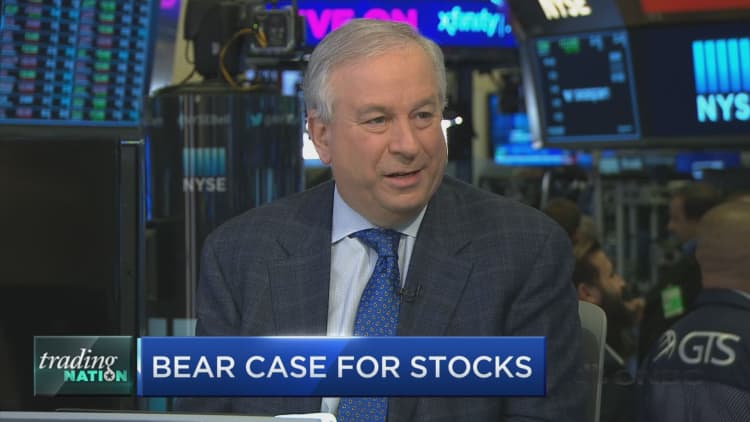
Gluskin Sheff's David Rosenberg expects negative growth to hit the U.S. economy sooner than Wall Street anticipates.
When his scenario officially unfolds, the long-time market skeptic warns, it will likely hit consumers first.
"Has the recession started officially? No, it hasn't. But the recessionary pressures are building," the firm's chief economist and strategist told CNBC's "Trading Nation" on Thursday. "It's all basically just about lags and effects. And, I think that the consumer is next in line, and we're going to see more evidence of that in the first half of 2020."
Rosenberg warned on "Trading Nation" in January that a recession was virtually unavoidable this year. Two months ago, he pushed his recessionary timeline out to less than 12 months away.
"We're at almost 0% [GDP] growth," he said. "My bean count for Q4 has a minus sign in front of it."
Former Federal Reserve Chair Janet Yellen is also expressing concern about the economy.
During Thursday's World Business Forum, Yellen said there's "good reason to worry" about the U.S. economy sliding into a recession. But unlike Rosenberg, she believes it's in "excellent" shape right now.
Rosenberg makes the case that the economy is not done feeling the effects of the Federal Reserve's decision to raise interest rates in 2018. He believes the Fed's action to begin lowering rates this year is not mitigating the impact.
"It's a classic game of dominoes. It's never always the same. But you have to know your history, and especially after a policy-tightening cycle, which we had from the Fed," he said. "You don't shock a part of the economy without shocking other parts with a lag."
He also calls the inversion in Treasury yields this summer a worrisome signal.
"The reality is that the yield curve stopped inverting in 2007. It inverted in '06," Rosenberg said. "The yield curve is not a coincident indicator. It's a leading indicator."
According to Rosenberg, companies' decisions to cut capital spending is beginning to trickle down to hiring decisions, and that puts consumer spending in a danger zone.
"The engine on the labor market is starting to sputter," he said. "The question is when does this morph into deteriorating employment conditions, because that's when it hits the consumer."
Rosenberg acknowledges his bearish take on the economy and markets is in the minority, and it's not the first time.
"I understand that there's a lot of optimism that the Fed saved the day. But you have to remember the last cycle. The Fed starts cutting rates in August of '07. Stock market rips. That's up 11% to the highs on October of '07, and all the recessionistas like myself were being laughed at," Rosenberg said. "Recession started two months later."







